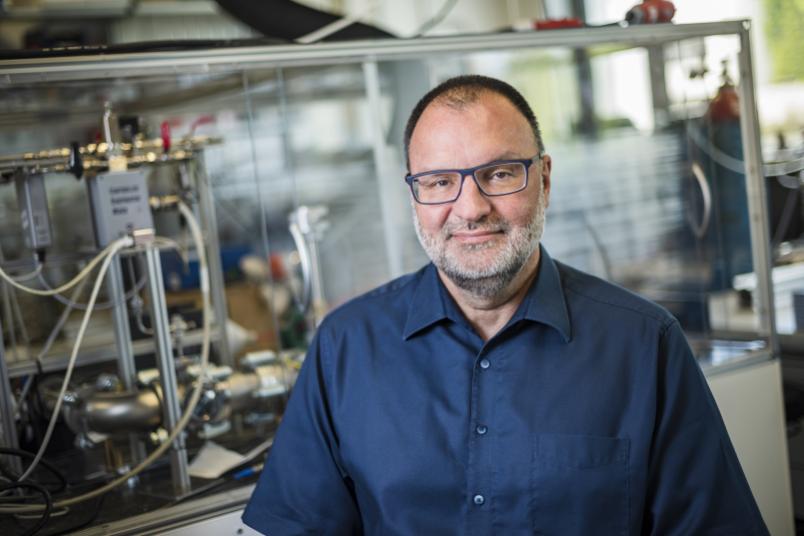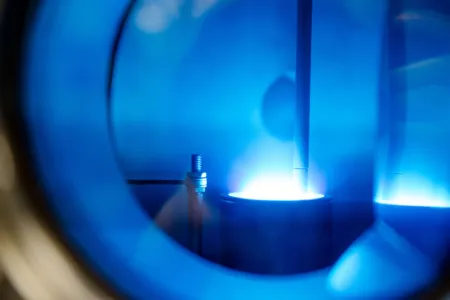
Industrial chemistry
Plasma generators control catalytic processes
Martin Muhler from the Chair of Industrial Chemistry explains in what way plasmas are likely to affect chemical reactions in future.
In ten years, researchers will have understood the interactions between catalysts, which determine the speed of chemical reactions, and plasmas. This will facilitate the excitation of the plasma at atmospheric pressure in such a way that its properties accelerate the reactions on the catalyst surface in a controlled manner. As a result, chemical engineers will not only increase the turnover of the starting materials, but also the percentage of these materials that will be converted into the required product.
Therefore, the vision is that plasma generators will control catalytic processes. New compact plasma catalyst modules will be created, through which large gas flows can pass with little pressure drop. This will enable exhaust gas streams to be purified and other important industrial reactions to be carried out. In order for the modules to work in a resource-saving way, researchers still have to boost their energy efficiency. In future, catalysis, plasma and reaction engineering experts will work hand in hand to develop plasma catalyst modules. Computer-aided plasma, velocity and flow simulations will help to optimise them.
